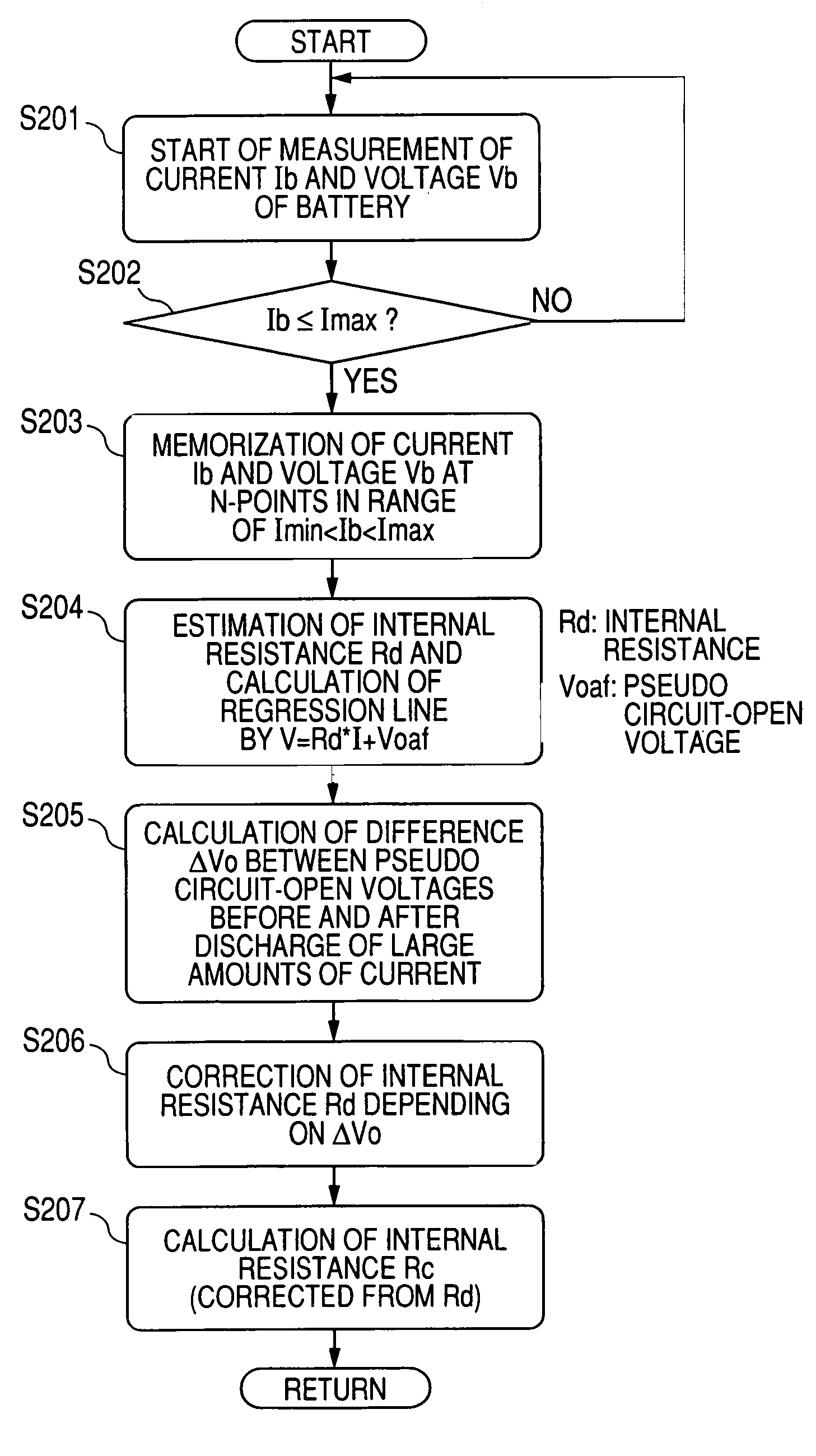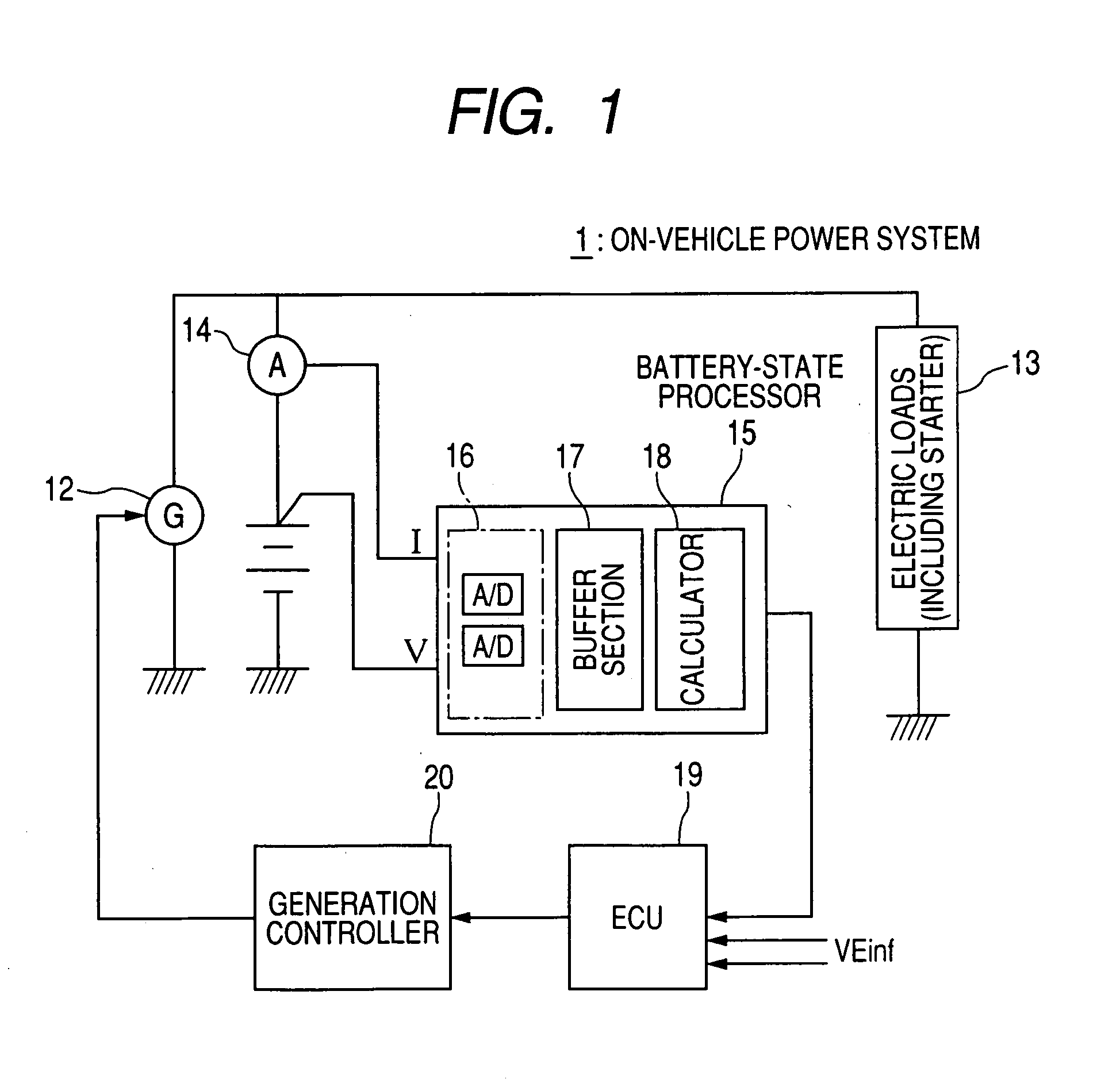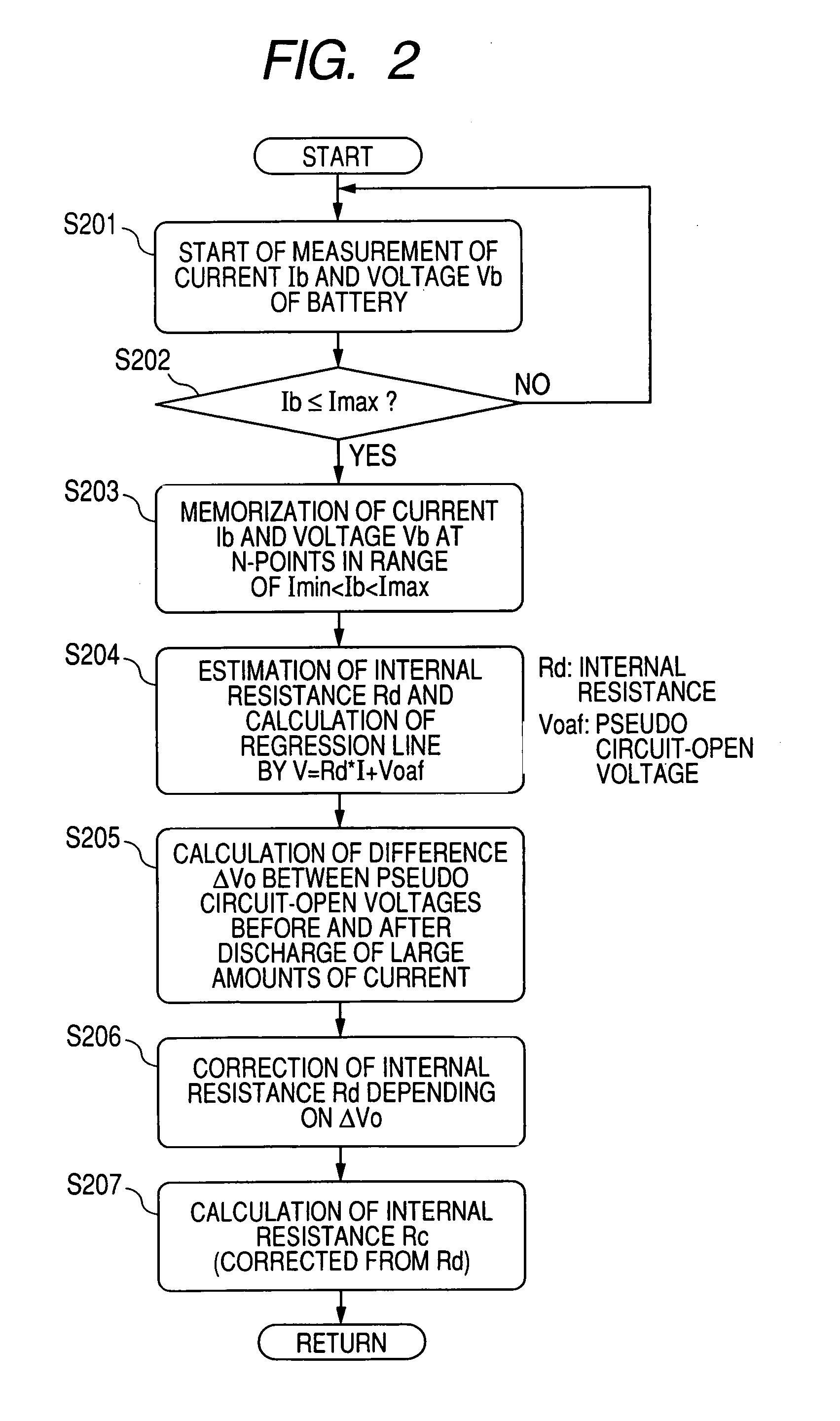Apparatus for calculating quantity indicating charged state of on-vehicle battery
a technology of on-vehicle battery and apparatus, which is applied in the control arrangement of battery/fuel cell, instruments, electrochemical generators, etc., can solve the problems of increasing the parts cost of signal processing circuit, raising the parts cost, and lowering the s/n (signal to noise ratio) ratio, so as to reduce the errors of internal resistance (rd), the effect of simple calculation
- Summary
- Abstract
- Description
- Claims
- Application Information
AI Technical Summary
Benefits of technology
Problems solved by technology
Method used
Image
Examples
first embodiment
[0037] Referring to FIGS. 1-6, a first embodiment of the charged-state quantity calculating apparatus according to the present invention will now be described. In the present embodiment, the calculating apparatus is reduced into practice by being functionally incorporated in an on-vehicle power system 1.
[0038]FIG. 1 shows a block diagram outlining the configuration of the on-vehicle power system 1.
[0039] The on-vehicle power system 1 shown in FIG. 1 includes a battery 11 which composes a power storing device to store electric power therein, an on-vehicle generator 12 driven by an on-vehicle engine (not shown), on-vehicle electric loads 13, a current sensor 14, and a battery-state processor 15. Of these, the battery 11 is a target of which internal state, that is, charged state is detected. This battery 11 is composed of a lead battery, a nickel metal-hydride battery, a lithium battery, or others. The on-vehicle electric loads 13 include a starter for starting up the engine.
[0040]...
second embodiment
[0065] Referring to FIGS. 7 and 8, a second embodiment of the charged-state quantity calculating apparatus according to the present invention will now be described. In the same way as the first embodiment, the calculating apparatus is reduced into practice by being functionally incorporated in an on-vehicle power system 1, which is the same in the configuration as that shown in FIG. 1.
[0066] The on-vehicle power system 1 according to the second embodiment is characteristic of using the internal resistance Rc on the formula (4) in order to estimate a lower limit voltage in starting up the engine (i.e., the starter). This estimation is very important in situations such as idle-stop running requiring frequent engine restarts (engine stop to engine restart in the idling) in order to secure that the battery 11 keeps a sufficient restart performance.
[0067] The present embodiment exemplifies estimating the lower limit voltage in the next startup the engine from the calculated internal re...
third embodiment
[0070] Referring to FIGS. 9-11, a third embodiment of the charged-state quantity calculating apparatus according to the present invention will now be described. In the same way as the foregoing embodiments, the calculating apparatus is reduced into practice by being functionally incorporated in an on-vehicle power system 1, which is the same in the configuration as that shown in FIG. 1.
[0071] The on-vehicle power system 1 according to the third embodiment further improves the performance to be obtained from the configuration in the second embodiment.
[0072] The second embodiment shows that, as described, using the internal resistance Rc allows the lower limit voltage to be estimated with higher precision. In contrast, the third embodiment improves a difficulty which may occur in a situation where the internal state (i.e., charged state) of the battery 11. changes in a period of time from the calculation of the internal resistance Rc to the next startup of the engine. In such a situ...
PUM
 Login to View More
Login to View More Abstract
Description
Claims
Application Information
 Login to View More
Login to View More - R&D
- Intellectual Property
- Life Sciences
- Materials
- Tech Scout
- Unparalleled Data Quality
- Higher Quality Content
- 60% Fewer Hallucinations
Browse by: Latest US Patents, China's latest patents, Technical Efficacy Thesaurus, Application Domain, Technology Topic, Popular Technical Reports.
© 2025 PatSnap. All rights reserved.Legal|Privacy policy|Modern Slavery Act Transparency Statement|Sitemap|About US| Contact US: help@patsnap.com



